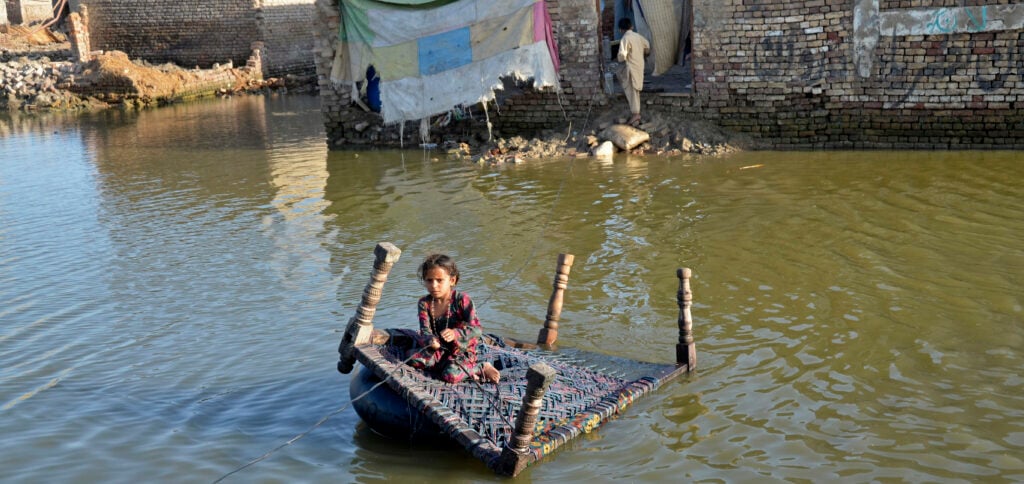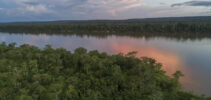🌱 STF orders the reactivation of the Amazon Fund
The Federal Supreme Court (STF) determined, this Thursday (3), by a majority, that the federal government reactivate the Amazon Fund within 60 days. The ministers followed the rapporteur, Minister Rosa Weber. The only exception was minister Kássio Nunes Marques, who dissented but had his vote defeated.
ADVERTISING
After the election of Luiz Inácio Lula da Silva (PT), Norway announced that it will unlock the transfer of resources. The Nordic country was responsible for 91% of donations, followed by Germany (5,7%) and Petrobras (0,5%). Germany also declared its readiness to resume financing.
🍃 Developing countries can reduce 70% of emissions with little investment, says World Bank
Developing countries can reduce emissions by 70% by 2050, investing 1,4% of GDP per year. This is according to a World Bank report, released this Thursday (3), according to which a green transition would make Argentina's GDP grow by 2,7% and Peru's by 2% by 2030.
The report highlights that high-income countries have greater responsibility for greenhouse gas emissions, which is why “they must lead the way with deeper and faster decarbonization, as well as greater financial support for low-income countries”.
ADVERTISING
Investment needs vary and in the case of poor countries they are “considerably higher” and often exceed 5% of GDP.
The publication of the report takes place on the eve of the meeting of almost 200 countries at the UN Climate Conference, COP27, in Egypt, during which the pressing need for resources will be debated to help countries with fewer resources adapt to the global warming.
🌿 Efforts to adapt to climate change are not keeping up with growing risks
With climate impacts intensifying around the world, countries need to drastically increase financing and implementation of climate adaptation actions. This is what the new report from the United Nations Environment Program (UNEP), released on the eve of COP27, says.
ADVERTISING
The document “Adaptation Gap Report 2022 concludes that global efforts to plan, finance and implement climate change adaptation are not keeping up with growing risks – being 5 to 10 times below estimated needs.
The study authors conclude that strong political will is needed to increase investments and adaptation results. For UNEP, crises such as the war in Ukraine and the Covid-19 pandemic cannot derail international efforts to increase adaptation to climate change.
🌳 “Caring for the trees in the forest”
The practical guide “Caring for the trees in the forest” takes an important step towards financial institutions, inviting them to take action against the risks of deforestation and conversion of native vegetation. Non-governmental organization initiative WWF, the document shows how the planet's ecosystems support the economic system.
ADVERTISING
It is estimated that more than half of the world's GDP is highly dependent on nature and its services. Therefore, the study highlights the role of the financial sector in sustaining the economic system, citing the main risks, such as: losses, from deforestation, for businesses and the financial institutions that support them and the financial impact of political measures, litigation and changes in consumer preferences.
The guide does not focus on risks, but mentions investment possibilities – some adapt to the Brazilian business model. Among the opportunities are:
- Green bonds: fixed income instruments aimed at raising funds for projects that offer environmental benefits;
- Impact investing: portfolios of shares or bonds in which socio-environmental factors are fundamental to investment;
- Innovative insurance products: insurance offers that facilitate risk management to promote environmental sustainability;
- Sustainability-linked loans: loan instruments that link their terms to the borrower's performance against a set of previously determined sustainability objectives.
The guide also addresses what is considered positive in terms of sustainable development for the financial sector, not only for the organization but also for its customers and partners.
ADVERTISING
(To AFP e Estadão Content)
O Curto Verde is a daily summary of what you need to know about the environment, sustainability and other topics linked to our survival and that of the planet.
(🚥): may require registration and/or signature
(🇬🇧): content in English
(*): content in other languages is translated by Google Tradutor






